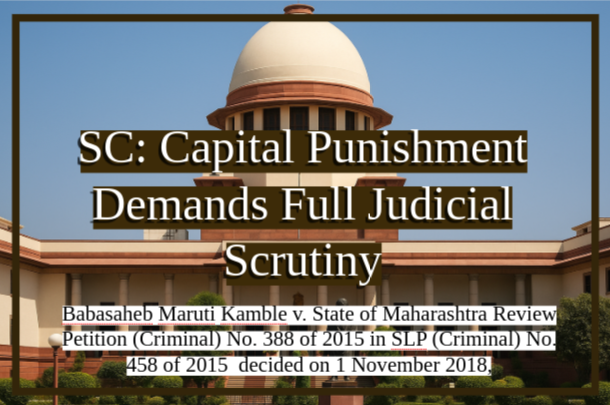Woman Abetment to Rape and it's Legality
- M.R Mishra

- Apr 1, 2025
- 3 min read
The recent ruling in Prashant Gupta & Others v. State of Madhya Pradesh has reignited debate on the scope of abetment in rape cases, particularly under Section 109 of the Indian Penal Code (IPC). Delivered by the Madhya Pradesh High Court, the judgment underscores how individuals including women can be held accountable for facilitating sexual violence, even if they are not the primary perpetrators.
At its core, the case raises essential questions about legal accountability, the role of indirect enablers, and the judiciary’s evolving stance on gender and criminal liability.
What's The Matter?
The case centers around allegations that the applicants, Prashant Gupta and his mother, actively enabled the commission of rape by confining the prosecutrix with the primary accused, Abhishek Gupta, despite her protests.
According to the complainant, Abhishek engaged in sexual relations with her under false promises of marriage, while his family members facilitated these acts by restricting her movements and coercing her into situations that left her vulnerable.
Based on these allegations, the trial court framed charges under Sections 376 (rape) read with 34 (common intention), 506-II (criminal intimidation), and 190 (obstructing a public servant) of the IPC.
The accused challenged this order through a criminal revision, leading to a critical judicial examination of abetment in sexual offences.
A key issue before the court was whether women could be prosecuted for rape-related offences.
While Section 376 IPC applies only to male perpetrators, the judgment reaffirmed that women can be held liable under Section 109 IPC for abetment if they intentionally aid or facilitate the crime.
This principle aligns with the Supreme Court’s ruling in Omprakash v. State of Haryana (2015), where a woman was convicted for luring the victim into a situation where she was sexually assaulted.
By upholding this precedent, the Madhya Pradesh High Court reinforced that abetment is gender-neutral—anyone who enables rape, directly or indirectly, can be held accountable.
The judgment also clarified the distinction between common intention (Section 34 IPC) and abetment (Section 109 IPC). The trial court had initially invoked Section 34, which requires active participation with a shared intent.
However, the High Court ruled that the applicants’ actions fit abetment under Section 109 which applies when someone aids or instigates an offence without necessarily being the primary actor.
The applicants’ alleged role in locking the prosecutrix in a room and pressuring her to remain with Abhishek constituted sufficient grounds to invoke abetment rather than common intention.
At the framing of charges stage, the threshold for prosecution is not proof of guilt but the existence of a prima facie case.
The court relied on State of MP v. S.B. Johari (2000) to affirm that the presence of specific allegations in the prosecutrix’s statements under Sections 161 and 164 CrPC justified proceeding with the trial.
Although the defense raised concerns about the delayed mention of the applicants’ involvement, the court found corroboration in subsequent testimonies, reinforcing the decision to move forward with the case.
This ruling carries far reaching implications for criminal law and gender justice.
First, it expands liability for abetment, confirming that even indirect facilitators—such as family members—can face legal consequences if they knowingly enable sexual violence.
Second, it clarifies that women are not exempt from accountability in rape cases, setting a crucial precedent for gender-neutral application of abetment laws.
Third, it strikes a balance between victim protection and due process, ensuring that allegations must be supported by substantive evidence before a trial is pursued.
Despite its significance, the ruling leaves certain legal questions unanswered. The court sidestepped potential charges under Section 120B IPC (criminal conspiracy), focusing exclusively on abetment. Additionally, it deferred the resolution of the consent vs. coercion debate, leaving this crucial aspect for trial scrutiny.
This judgment is a crucial reminder that complicity whether through coercion, facilitation, or deliberate inaction cannot be overlooked in the pursuit of justice.
Disclaimer: This blog is for informational purposes only and does not constitute legal advice.






Comments